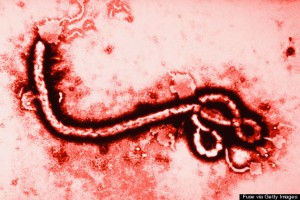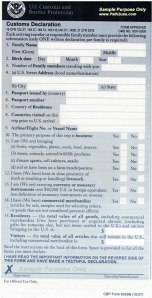… Ebola Screening
Sorry that I have not posted in a while. I have been a bit busy and I recently came down with the flu. It is only fitting that this article is about disease. I’ve also got a climate change post in the works. I wanted to post it a few weeks ago when all eyes were on New York, so I guess I’ll just have to post it with a back-date now.
Two aspects of the Ebola case in Dallas bother me a lot. The first is that the patient went to the hospital with symptoms, told the hospital he had recently been in West Africa, and nevertheless he was turned away. I can’t know for sure, but I assume that the patient is uninsured, and the admitting nurse, who is instructed to turn away patients who are unlikely to be able to pay their hospital bills, simply saw the hospital’s finances as a greater danger than Ebola.
Because of this episode, the White House is considering establishing States-side Ebola screening in airports. However, people seem to be at a miss on how to implement this. They say that there are just too many airports and too few West African passengers. That’s the second aspect that bothers me a lot. It is fairly easy to identify which airports have the highest rate of passengers coming from Liberia, Guinea, and Sierra Leone. Here’s how:
I assume that the FAA has a database of all passengers coming and going from the US. If not Homeland Security, the airlines, or probably the NSA does. Gather this data and discard all trips that do not originate in West Africa. Then count up all the trips by the airport that they terminate in and convert this into a percentage. And there you have a crude estimate of the most likely entry points for Ebola into the United States of America. I’m assuming that JFK will be high on the list. Maybe Chicago, LA or San Francisco, and maybe Dallas and Miami will be high on the list as well.
Now that will only cover some of the possible passengers who could carry the virus. People could travel to an infected country on a different ticket, and then later come back to the United States. For instance, last year my friend went to West Africa for work, and on the way home he spent a few days in London. I assume that his Africa-London ticket and his London-US tickets were different. These would be harder to track because I don’t know if there is reliable data available on these trips. Maybe Homeland Security, the NSA, the FBI, or the CIA tracks these trips, but I think it would be difficult for even an economist at the CDC with security clearance to obtain this information. However, on landing cards for the US you are asked, “Countries Visited on this trip prior to US arrival.” Of course these are not digital, but it is possible that Homeland Security has some stats they can share. I won’t dive into how to process these stats, since we have no idea what form they could take.
Lastly, another way to capture the elusive passengers who visited West Africa on non-US terminal tickets is through a random sampling method. First, collect a list of all possible one-stop destinations from Liberia, Guinea, and Sierra Leone. I think that one stop is reasonable. There are very few non-stop flights from West Africa in general, but I think that two-stop flights may be casting the net a bit too wide. From this list, eliminate any flights that terminate in the US (those are already covered by the supposed-FAA data) and any flights that do not terminate in an airport with flights direct to the United States. From the FAA data, randomly select passengers departing from these airports to see what airports they are arriving to in the US. The random sampling could even be weighted, giving higher preference to more likely airports, such as those in Europe, and lower preference to less convenient flights, such as East Asia. Simply add this sampled data to the FAA-obtained data and you have a more complete, albeit less-than-perfect, picture.
The last obstacle is time-frame. Peoples’ flight patterns and behaviors have changed since many airlines have cancelled flights to West Africa. So this data should probably only be collected over a six month period or so. Otherwise we would be setting up screening centers in airports that are no longer seeing passengers coming from West Africa.
If these data are properly parsed and analyzed, the government would have a list of the most likely ports of entry for Ebola. With this information they could set up screening centers in a cost effective manner that interrupts and inconveniences air travel as little as possible.
Posted on October 7, 2014, in Air Travel, Geopolitics, Globalization and tagged air travel, airline, airlines, airplane, Big Data, CDC, CIA, connection, connections, Customs, Customs and Border Protection, Dallas, data, Data science, data sciences, ebola, Ebola virus, FAA, FBI, Guinea, Homeland Security, international air travel, international travel, Liberia, NSA, Obama, President, screen, screening, Sierra Leone, virus, West Africa, White House. Bookmark the permalink. Leave a comment.


Leave a comment
Comments 0